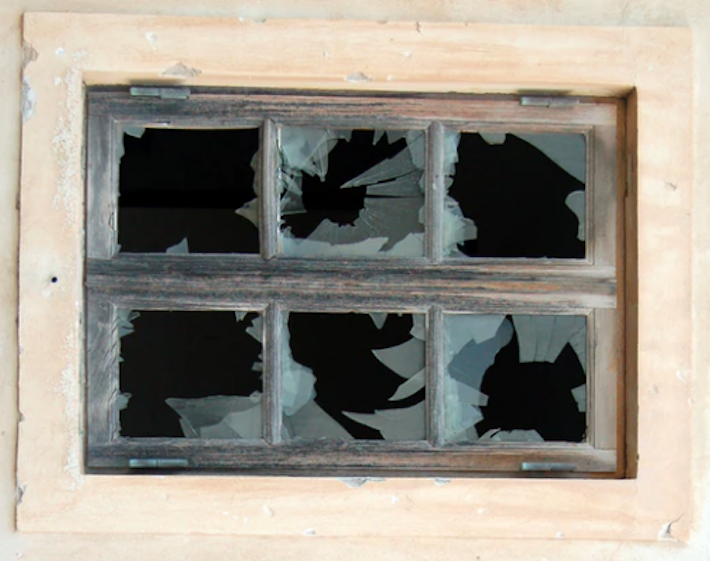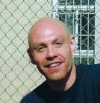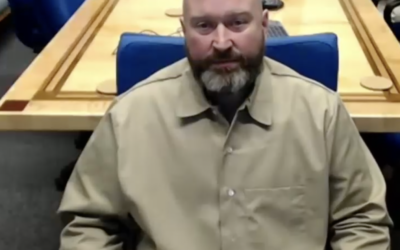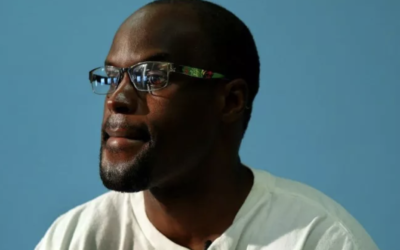Human brokenness is a universal aspect of the human experience, right. I mean, we are all messed up a little. It’s the common denominator that links us all and levels the playing field to a certain extent. There are countless variations, but we all feel it with great depth, each one of us. The great American poet, Ernest Hemingway wrote, “The world breaks everyone and afterward many are strong at the broken places.” That is a simple yet profound way to frame the human condition, but it leads to so many questions, especially for the incarcerated.
Are the strong those who have never allowed their own brokenness to harm others? Or are they those who overcome their own brokenness despite having harmed others? One cannot come to prison for taking a human life without being broken mentally, emotionally, and spiritually, and I don’t mean broken as an effect of incarceration. I mean broken as the cause of my violence, the very impetus for my horrible crime. The depth and reach of the type of brokenness required to take another man’s life during a physical altercation in which I was the aggressor must be pervasive and complete, leading me to wonder … does my brokenness break me? Am I so psychologically disintegrated that I’m incapable of truly overcoming my brand of brokenness in order to move forward and effectually impact the world in a positive way?
Of course, some broken things retain a degree of functionality, still able to do some good. Most people have heard the proverb about the woman with the cracked pot. The pot was depressed because it was unable to hold water. It slowly leaked as the woman walked home from the local well each day, and constantly compared itself to the pot the woman carried in her other hand which did not leak. One day, the leaky pot said to the woman, “You should discard me and get a new pot that functions as it was designed, like your other one.”
She responded to her broken pot, saying, “I’ve been aware of your flaw these many years, and I’ve used it to my advantage. Notice along your side of the path the abundance of flowers blooming in this desert, which could not be watered properly if you did not leak so perfectly.” The leaky pot looked and saw the beautiful variety of flowers along only one side of the path, the side on which it was carried, and was astonished. From that point forward, that leaky pot never felt insecure again.

On the other hand, that story, while comforting, remains somewhat of a fairy tale. Most broken things are discarded in favor of fully functional new things, things that function as they were designed. Household appliances, car parts, phones, these are all things that are quickly replaced when they cease to function optimally.
Yet, I am not a thing. Things are simple. I’m a complex human being, and for the first 23 years of my life, my brokenness manifested in ways that hurt others and negatively impacted my environment. I spread darkness, decay, and pain through my self-centeredness. The question that haunts me is … can a bad person become good?
However, I remain a man who took a life in anger. I’ll never be able to change that. A character that Ben Affleck played in a movie, Doug McRay, said, “No matter how much you change, you still gotta pay a price for the things you’ve done. So, I got a long way to go.” I connect with that sentiment so deeply, and I cannot help but lament the possibility that my past may disqualify me from ever being a good man.
I’ve worked extremely hard to become a better person, to achieve balance and reciprocation in my relationships, to appreciate and even celebrate the differences between myself and others. I’ve grown into a man who cares about the humanity and dignity of others, who understands that I’m not entitled to special treatment or to violate the rights of others in order to meet my own needs. I’ve learned the value of working hard to earn something and waiting my turn because I’m not more important than anyone else. I’ve increased my education level, my capacity for critical thinking, logical reasoning, and associative thought, my emotional control, and my spiritual understanding.
A good man is authentic, trustworthy, and loyal. He does not seek accolades. He helps others easily, and avoids doing harm whenever possible. He is reliable, honorable, and strong-minded. He is humble, caring, and teachable. He operates with integrity, carries himself with dignity, and treats others with kindness. He pushes back when pushed too far, but never looks for trouble. He stands up for the helpless, but understands when to remain seated. And perhaps most importantly, he takes responsibility for his actions, admits his mistakes, and offers a genuine apology when necessary.
I sincerely strive to uphold these ideals every day. Yet I fall short more often than I’d like, and I worry it’s because I’m irreparably damaged. I mean, it’s not just the fact that my violence removed another human being from this planet that is deplorable; it is the fact that I was capable of such an act.
I have been incarcerated for 18 years for something I did when I was 21-years-old, but I honestly do not believe I have paid for what I’ve done. How can I quantify the value of a human life? Was he worth 25 years? 50? I can never pay for the life I took. All I can do is use the actions of my past to shape the direction of my future. I can do my absolute best to make sure I strive to be a good man, readily admit when I’ve made a mistake, and purposely impact others positively, in one way or another, every single day. But I’m not sure it’s good enough.






Thank you to bring hope into my life. Thank you to share your beautiful thoughts through beautiful and meaningful words. Just want to let you know, you have saved someone´s day by your meaningful and beautiful texts.